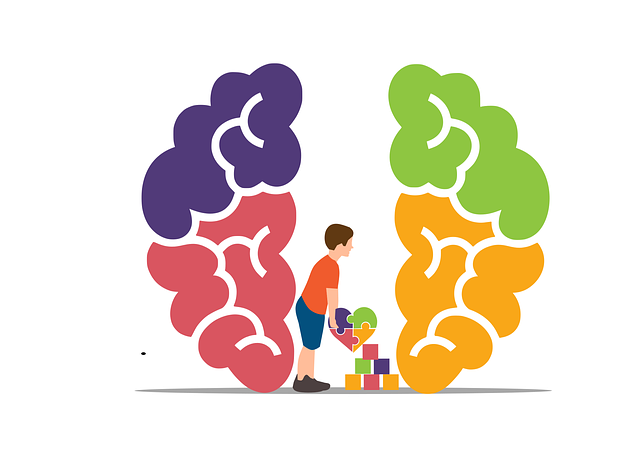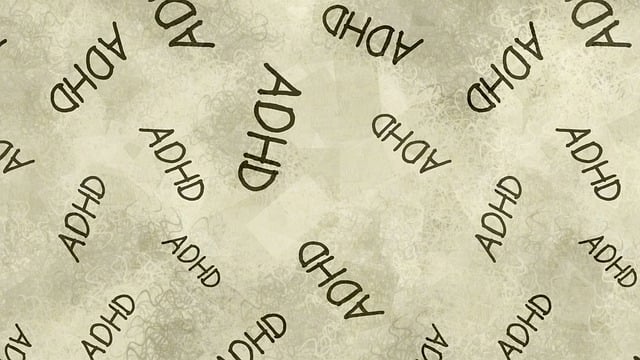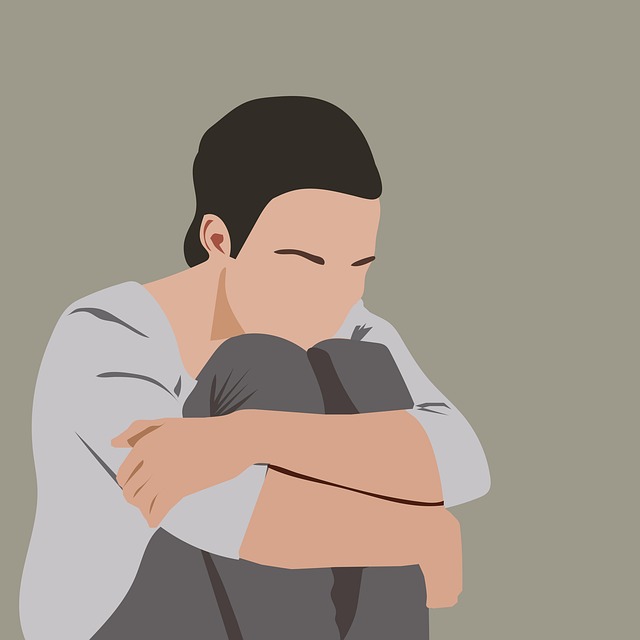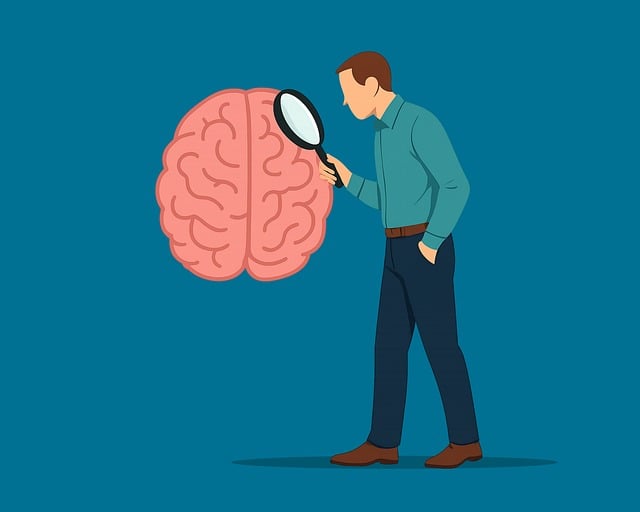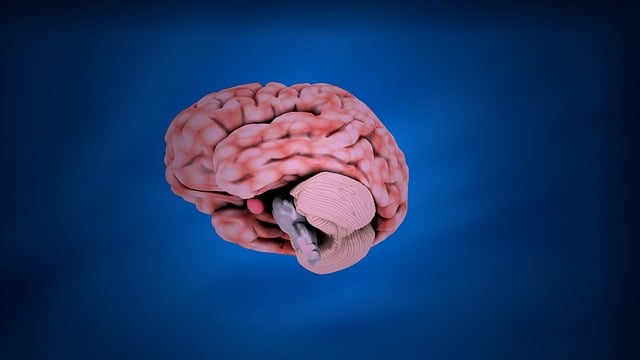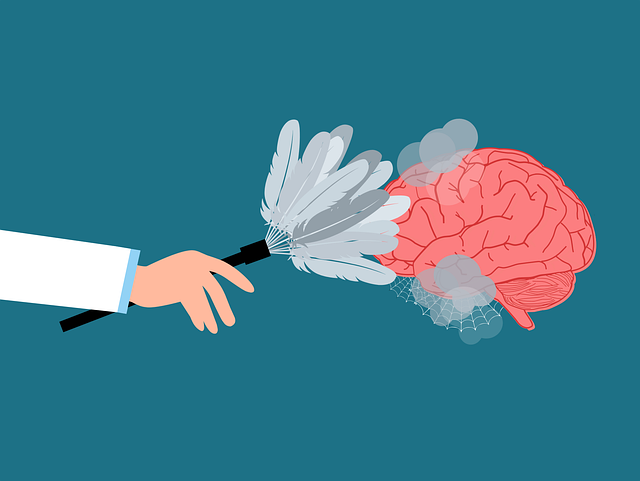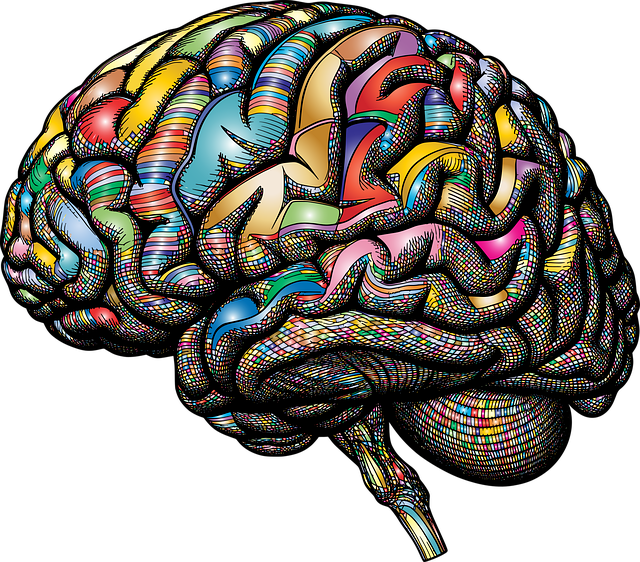Cultural competency is a vital aspect of modern healthcare, especially for conditions like Centennial Panic Disorder and Anxiety Attacks Therapy, as it goes beyond language translation. Healthcare providers must understand and respect diverse cultural beliefs and practices related to mental illness. Skilled professionals recognize and overcome barriers such as traditional healing methods and spiritual rituals to build trust and improve communication with patients from various backgrounds. This competency is crucial for developing inclusive public awareness campaigns and improving treatment outcomes by addressing cultural biases, language barriers, and stigma. Training programs emphasize interactive workshops, multimedia resources, and role-playing exercises to enhance culturally competent care, ensuring better patient outcomes and fostering long-term mental wellness for all communities.
Healthcare provider cultural competency training is an essential framework for delivering effective, empathetic care. In a diverse society, understanding cultural nuances is vital to address health disparities. This article explores key aspects of cultural competency in healthcare, including its impact on mental health treatment, specifically Centennial Panic Disorder and anxiety attacks therapy. We discuss effective training strategies and present case studies demonstrating the power of cultural sensitivity in improving patient outcomes.
- Understanding Cultural Competency in Healthcare: A Necessary Framework
- The Impact of Unaddressed Cultural Biases on Mental Health Treatment
- Exploring Centennial Panic Disorder and its Cultural Context
- Effective Training Strategies for Healthcare Providers
- Case Studies: Improving Anxiety Attack Therapy Through Cultural Sensitivity
Understanding Cultural Competency in Healthcare: A Necessary Framework

Cultural competency in healthcare is a vital framework that enables medical professionals to provide quality care to patients from diverse cultural backgrounds. It goes beyond basic language translation and involves understanding, appreciating, and respecting different cultural beliefs, values, and practices. This concept is particularly significant when addressing mental health issues like Centennial Panic Disorder and Anxiety Attacks Therapy, where cultural sensitivity can significantly impact patient outcomes.
In the context of anxiety disorders, healthcare providers must be adept at recognizing and navigating cultural barriers to treatment. For instance, some cultures may have unique perceptions of mental illness or specific approaches to coping with anxiety, such as traditional healing practices or spiritual rituals. By embracing cultural competency, professionals can foster better communication, build trust, and improve adherence to treatment plans. This, in turn, supports the development of public awareness campaigns that promote understanding and encourage individuals to seek help for their inner strength development and mood management.
The Impact of Unaddressed Cultural Biases on Mental Health Treatment

Unaddressed cultural biases within healthcare systems can significantly impact mental health treatment outcomes, particularly for conditions like Centennial Panic Disorder and Anxiety Attacks. When therapists or counselors fail to recognize and navigate cultural differences, they risk exacerbating existing symptoms and hindering progress. For instance, a patient from a diverse background might present unique challenges due to language barriers, differing therapeutic expectations, or specific cultural beliefs about mental illness. If these factors are not considered, the individual’s experience of anxiety disorders could be misdiagnosed or inadequately treated.
Mental health awareness and crisis intervention guidance heavily rely on culturally competent practices. Therapists play a crucial role in fostering safe spaces where clients feel understood, allowing for honest discussions about their experiences. By incorporating insights from the Mental Wellness Podcast Series Production, healthcare providers can develop tailored interventions that resonate with diverse populations, ultimately improving access to effective therapy and enhancing overall mental wellness.
Exploring Centennial Panic Disorder and its Cultural Context

Centennial Panic Disorder, characterized by recurring and intense anxiety attacks, is a modern manifestation of stress within our fast-paced world. This disorder, often intertwined with broader mental illness stigma, demands sensitive understanding and empathetic responses from healthcare providers. In today’s diverse communities, where individuals from various cultural backgrounds interact, it’s crucial for healthcare professionals to grasp the nuances of different experiences and beliefs surrounding mental health issues.
Training in cultural competency is vital to address this challenge. Through comprehensive programs that include Mental Illness Stigma Reduction Efforts, healthcare providers can learn effective Empathy Building Strategies. For instance, understanding the impact of community outreach programs implementation can foster better connections with patients from diverse communities. By embracing these initiatives, healthcare providers can create a supportive environment, ensuring individuals suffering from Centennial Panic Disorder receive the therapy and care they need without additional barriers imposed by cultural or social factors.
Effective Training Strategies for Healthcare Providers

Effective training strategies for healthcare providers are essential to ensure patient care that is culturally competent and empathetic. One key approach involves interactive workshops that simulate real-life scenarios, allowing professionals to practice responding to diverse patient needs. These sessions can cover various topics, such as understanding cultural backgrounds, communicating effectively with individuals from different ethnicities, religions, or socioeconomic statuses, and recognizing and addressing mental health issues like anxiety attacks and panic disorder. By engaging in role-playing exercises, providers learn to adapt their therapeutic techniques accordingly, fostering a more inclusive healthcare environment.
Additionally, incorporating multimedia resources, case studies, and peer discussions enriches the learning experience. Presenting scenarios that reflect real-life challenges faced by patients with mental illnesses, such as anxiety and panic disorders, enables healthcare providers to engage in meaningful conversations about stigma reduction efforts. Encouraging self-care practices among these professionals is also vital; training sessions can offer strategies for emotional regulation, helping them manage their own stress and bias so they can better support their patients’ journeys towards healing, whether it’s through therapy or other treatment modalities.
Case Studies: Improving Anxiety Attack Therapy Through Cultural Sensitivity

In healthcare, cultural sensitivity plays a pivotal role in effective treatment, especially for conditions like Centennial Panic Disorder and Anxiety Attacks Therapy. Case studies have shown that incorporating cultural competency training into therapy sessions significantly improves patient outcomes. For instance, therapists trained in emotional intelligence can better understand and address the unique needs of diverse patients, fostering a sense of trust and openness. This leads to enhanced anxiety relief and improved mental wellness for individuals dealing with panic disorders.
The integration of these skills isn’t just about treating symptoms; it’s about creating an environment where patients feel heard and validated, which is crucial for long-term mental wellness podcast series production. By tailoring therapy to respect and embrace cultural differences, healthcare providers can ensure that anxiety attack therapy is as effective for minority populations as it is for the majority, ultimately contributing to a more inclusive and caring healthcare system.
Healthcare provider cultural competency training is a vital tool in addressing unspoken cultural biases that impact mental health treatment, such as those affecting individuals with Centennial Panic Disorder. By integrating effective training strategies, providers can improve therapy for anxiety attacks, fostering a more inclusive and sensitive healthcare environment. Case studies demonstrate the tangible benefits of this approach, showing improved outcomes when cultural sensitivity is at the core of patient care.
